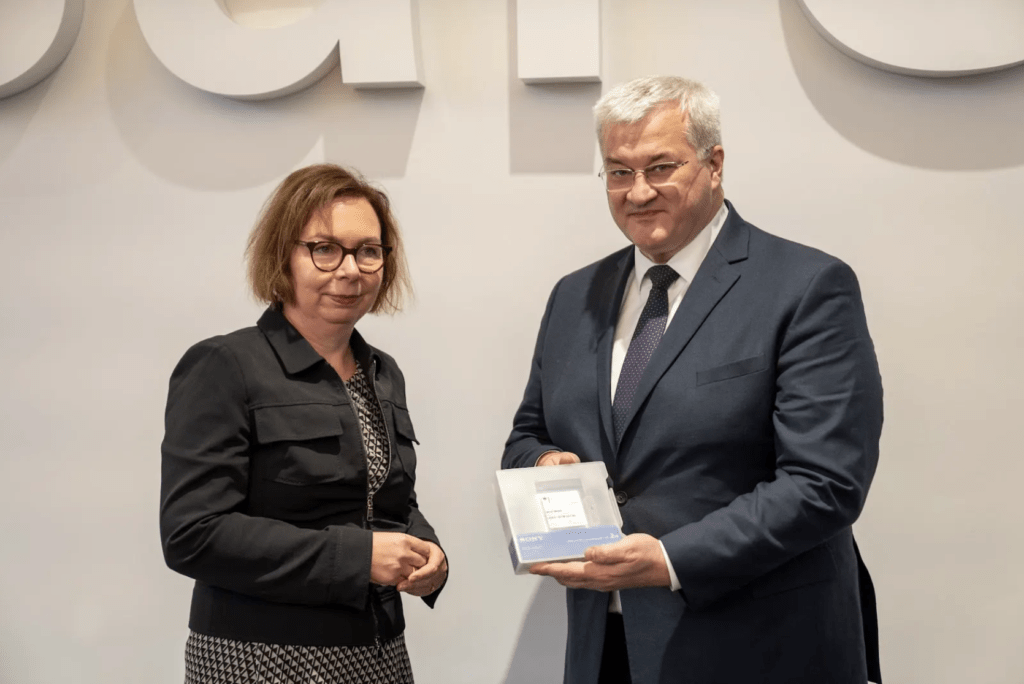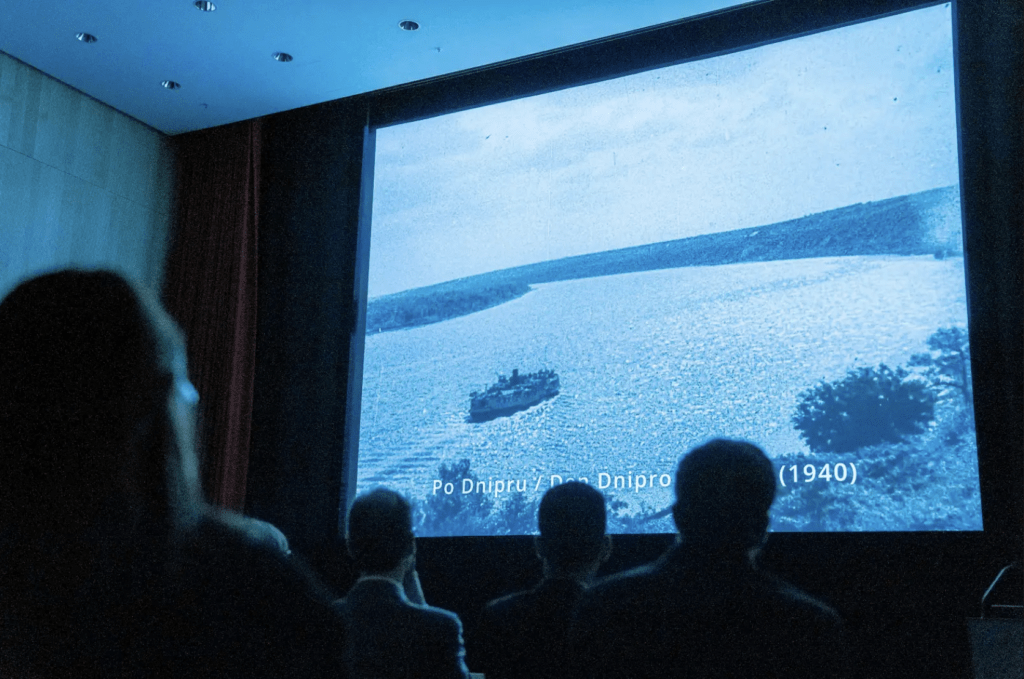Returning of cultural heritage: Germany handed over Ukrainian films
On 12 December, the Federal Archive of Germany handed over a hard drive with films from its collection related to Ukraine to the Minister of Foreign Affairs of Ukraine, Andrii Sybiha. Nine new films, the oldest of which is from 1919, will be added to the Dovzhenko Center collection.
This is the result of intensive collaboration between the Federal Archive and Ukrainian film scholars and archivists, during which these films were identified and digitised. These films are now permanently accessible for the first time through the Digital Reading Room and will be provided to the Alexander Dovzhenko National Centre for preservation and analysis.
“We are grateful to the Federal Archive of Germany for helping to restore our cultural artefacts. These unique works of art and documentary footage provide insight into Ukraine’s century-long struggle for independence, as well as the Soviet totalitarian rule of the 1930s and 1940s. Much work still needs to be done to research these and other historical sources, and to decolonise Ukrainian history”, said Andrii Sybiha, Minister of Foreign Affairs of Ukraine.
“The war against Ukraine is also directed at its culture and institutions that represent the country’s identity. Therefore, we want to send a signal of solidarity and support. Films are special testimonies of a country’s cultural identity, which archives must preserve. Ukraine’s rich cultural heritage must also be made accessible to the wider public in this country”, said Andrea Henger, Vice President of the Federal Archive.
Three feature films, one short film, two animated and three documentary films were selected. According to research, some of these films have only survived in the Federal Archive as unique contemporary copies on celluloid nitrate media. These include a children’s film considered lost, “Congratulations on Your Promotion” (1932) by Ukrainian director Ivha Hryhorovy¢, one of the few female filmmakers in Ukraine in the 1930s. The film “The Bolshevik Atrocities of 21 August 1919 or Kyiv’s Days of Terror” (1919) shows the unvarnished cruelty of the civil war. Here is a list of all films with descriptions and links to the Digital Reading Room.

“Working with archives and archival materials about Ukraine plays a crucial role in preserving and understanding the diversity and depth of Ukrainian culture. Collaboration with the German Federal Archive underscores the value of this work. The restored collection includes significant works, such as works by one of the early Ukrainian directors and examples of Ukrainian animation. These are important contributions to Ukrainian cinema and its heritage, offering a broader perspective on its history and traditions both in Ukraine and internationally”, said Volodymyr Sheiko, Director General of the Ukrainian Institute.
“Communities under aggression must have a voice, visibility, and must also support processes that define a civilised society. We are extremely motivated that, despite the terrible war, the Dovzhenko Centre continues professional archival and research activities – thanks to the significant contribution of our partners. Collaboration with the Federal Archive in repatriating Ukrainian film heritage began long before the war, as early as 2014. The passionate work of Ukrainian and German film researchers and archivists has helped us fill gaps in the Ukrainian cultural process of the 1920s and 1930s. This unique acquired collection gives us a sense of unity and new energy to protect and nurture cultural identity”, said Olena Honcharuk, Head of the Olexander Dovzhenko National Centre.

Since the beginning of the war, the Federal Archive has further intensified its collaboration with Ukrainian archives. It has provided Ukrainian archives with equipment, including scanners and other materials, to help secure and digitise their collections. The Federal Archive is a partner of the Babyn Yar Memorial Centre. Ukraine is connected to the Stasi Archives through its participation in the European Network of Official Bodies Responsible for Secret Police Files.
